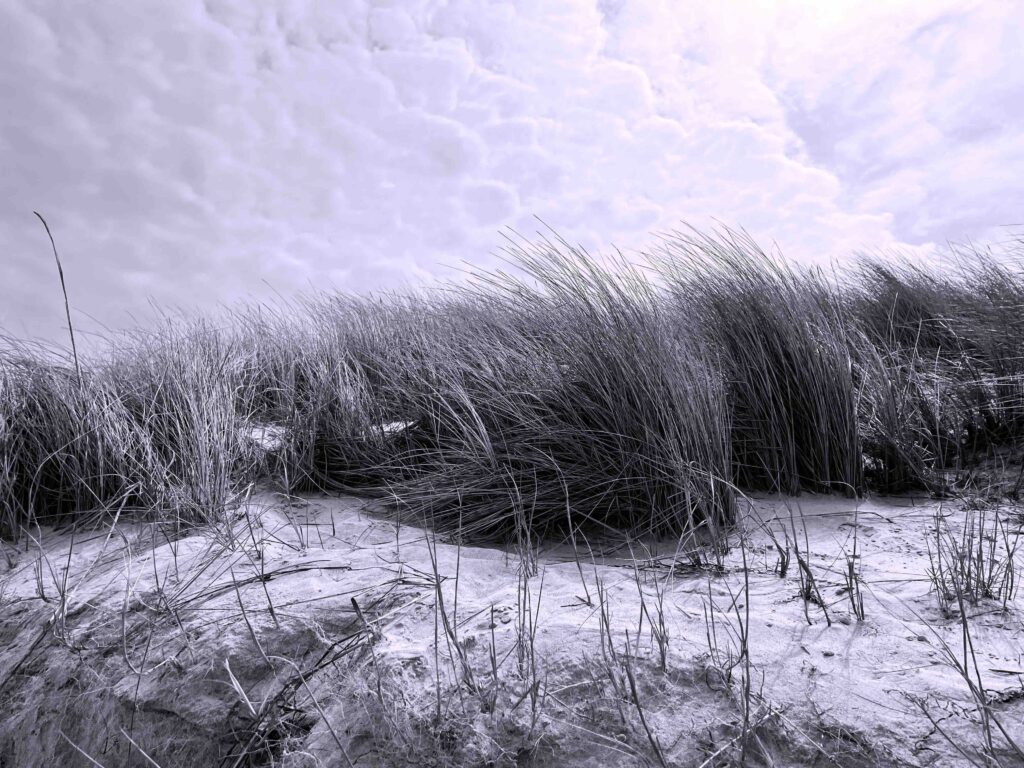
Awe / Sgomento
A new short story from far away…
by our contributor Till Bögelsack (28/11/2024)
(i)
A good night’s rest. Night falls as the pink horizon gives way to the starry night. The moon rises, bright, loving. But a glimmer of light remains on the horizon. The riders pitch their tents on land near the rocky cliffs of the desert. They listen to the sound of the balalaika, the balalaika of the north. They play the balalaika beautifully.
A triangular musical instrument with strings, a beautiful sound.
Peace and lightness remain. We have time to look up, some snow is melting. Maybe the snow melts into the groundwater? This land has a certain need for the liquid of life, water. We turn our eyes back to the horizon. The riders settle back into their saddles. The last rays of sunlight curl up the vermillion color sandstone cliffs just before nightfall. Have you noticed how the sandstone cliff is shaped by the shadows of the wind?
Leave the valley behind. Flat land spreads out where the rocks have crumbled to the ground. The canopy stretches to the horizon. The rocky ground gives way gently under the hooves of the horses. The horses’ hooves flatten the earth, pushing tiny pieces of rock to either side of the road. Small stones along the road. Limestone breaking and reassembling.
Word after word, the desert flows like a series of sentences. It is as if the sand is moving. But you know that soon there will be a break for the night. There are waves of joy in the words. The night is coming. There is joy in what cannot be captured in words. We read on, forgetting words. We add new ones that flow beautifully. The whole mood lightens a bit. The flow of language becomes a little softer, a little like the flow of the desert. The riders flow with grace. As each layer of sand shifts, their hearts find their inner fulfillment in the conversation. Beautiful.
Night rest, tent prepared. We all find ourselves again. Hopefully refreshed for the morning. Or as much as the human imagination allows.
The morning hints at light. The sky turns blue. Tender love and good morning. Sometimes the early light is the beginning, fresh as citrus, lemon juice.
Standing in the shadow of layers upon layers of sand, punctuated by small stones and debris from the mountains. Some stones are hard and smooth, shining like quartz sand. They emerge into the light as the sun rises.
Tents have been pitched on the dry earth to shelter them while they sleep. They are watered with tea, well nourished after eating layered pastry, baklava, shared by all.
They are deeply satisfied, there is a deep resonance. Everyone feels part of the journey. The dreams of last night remain in their hearts. They reflect, share good dreams. They are all on a journey together.
There is a moment of reflection. Philosophy is discussed this morning in the manner of Socrates. The eyes flow gently. They survey the land. They find graceful lines stretching before their eyes. Beauty is not only within them. Beauty is all around them. Beauty extends from within far out into the imagination of the sand and the cover of the morning. The sun rises. There is a blending of light and darkness as the darkness gently gives way to the light. Their faces are subtly illuminated by the light. This is a good moment. How good to be in good company.

(ii)
The desert shifts and reflects. The visible light is seen like a delicate landscape and short waves of ultraviolet are emitted. It is dawn. But some shadows remain, changing more and more from dark color to light as the morning comes. The inner heart turns to the light color of the desert. The morning has broken. Everything is searching and belonging, like the beautiful matryoshka of many layers. The land is like the Kosh-Agach, the auburn clay of wide spaces, or the auburn clay of the Atlas. The iron-rich rocks of the desert and the tundra feel the same. They have the same quality or spirit, layered perception intertwined as one.
Now you see the color of the desert moving from dark to light over flat, soft peaks on the horizon, turning deepest blue, where everything is still stirred in complexity, a little dark with a sliver of light above. Everything is searching for the beginning of a new day of glory that will enchant the rider’s heart. Cold gives way to warmth and the land is fulfilled. This morning clarity is not the pink hue of the evening sky, but the clarity that morning brings. In the distance, mountains stand resolute. There they rest in a white, fog-like blanket that lies over the land. Morning.
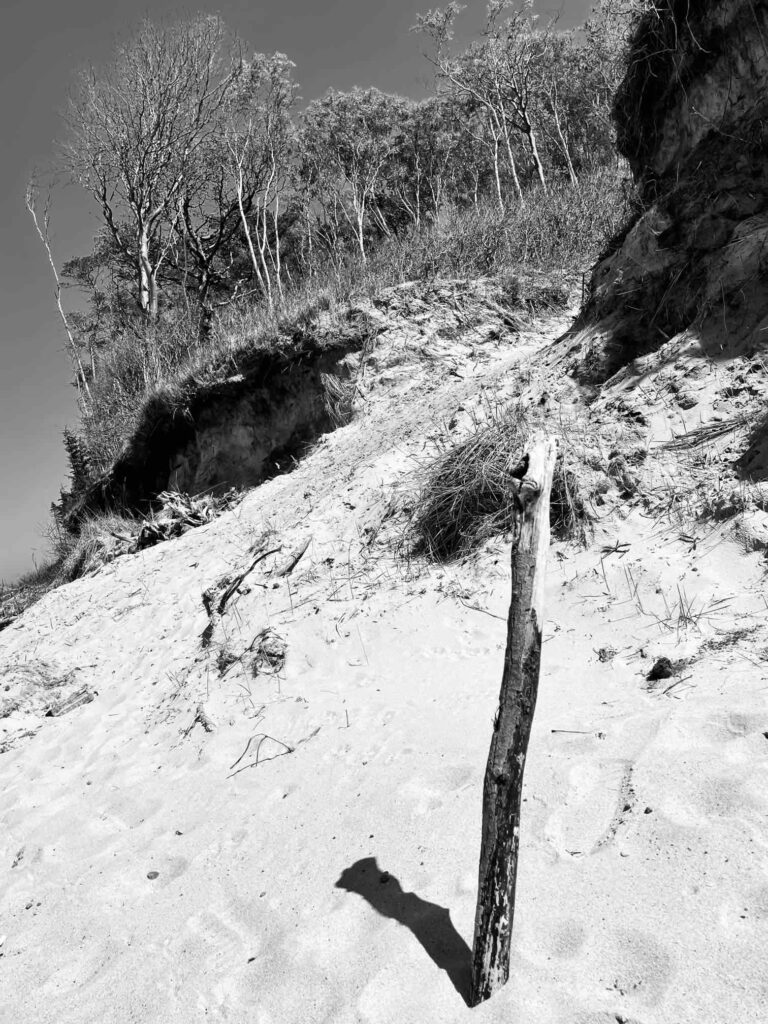
(iii)
Imagination. Intermezzo. Another place. Another land. Earth and desert seem to merge in the landscape of the Kosh-Agach, the agate-colored clay, or the agate clay of the Atlas. Our imagination.
There are towering mountains with snow-capped peaks beckoning the rider to explore and venture into the unknown.
Every morning in Kosh-Agach, agate clay, or the agate clay of the Atlas, brings new joy to the player of a beautiful balalaika.
The sun shines into the open valley where each layer of rock shows a unique soft color. The eyes of the imagination move from the maple-studded valleys. Beautiful Tatarian maples, slightly burgundy in color, yet seeming to reach up to the deep blue of the sky. They are sturdy. From the grassy plains that stretch across the flatness of the valley to the immensity of pine and birch trees that stretch across the taiga.
But the snow of the taiga is far from the desert. There is a geographical distance to the land of coniferous trees.
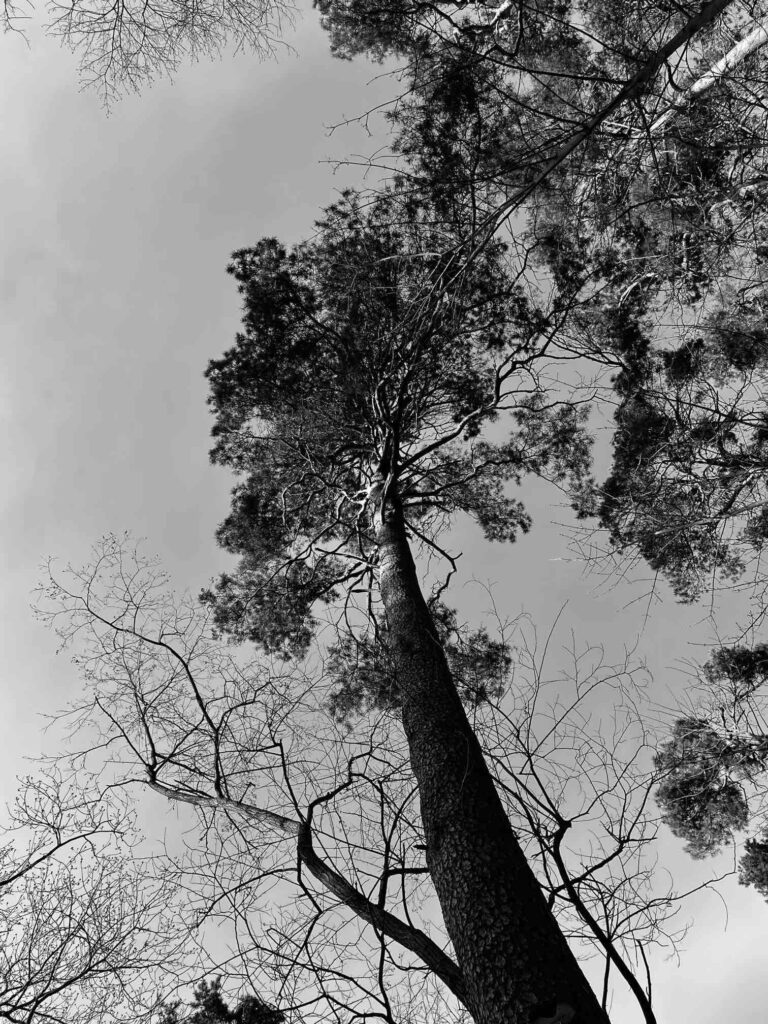
(iv)
Back from the intermezzo. The desert. The wide gate to the desert stretches before them. Here the riders wait for the final packing of the tent, in beautiful conversation, in deep love. Their eyes flow half asleep into the desert, watching the smallest crinkles, moving through the vast space to find the light. The light has touched the finest folds of rock, the land below. Between the folds of the desert land, the earth is still mild in the morning.
Shadows still intercept the peaks, the slight sway over the rocks. Light separates and dissolves into shadows that brighten. The white morning dust dissipates and restructures itself naturally. The flat expanse of land, a perpetual motion, gives dynamism to the myriad forms of an imaginary garden.
In the desert landscape, talking about imaginary flowers of philosophical thought leads to a beautiful alignment, a release of serotonin that brings the riders closer. The conversation is one-on-one, and sometimes many. They are like a garden of fig trees, olive groves. Every cloud of rain can, in time, transform the desert into a home for olives and figs. Well-watered is the land in the eye of the imagination, it seems. Golden is the glow of the desert in the morning.
They are graceful conversationalists, seekers of whole libraries of knowledge. They are dressed in the color of a fig tree, bright green like the leaves of the fig tree. They express their deep love for olives and figs and for the trees of the north, like the pine. They care deeply for nature, cultivating many date palms that make an oasis green.
They are in the middle of a casual morning conversation. Their good hearts are like the branches of a green olive tree, calm as the peace of the morning breeze.
They are in a good mood, playing the balalaika of the north, and find home in the morning discourse. Balalaika strings play the sound of pines in the desert, bringing snowflakes into the desert heat. Where every conversation seems like a new synapse for growth, a step into the unknown. They are open to every nuance of understanding within the conversation.
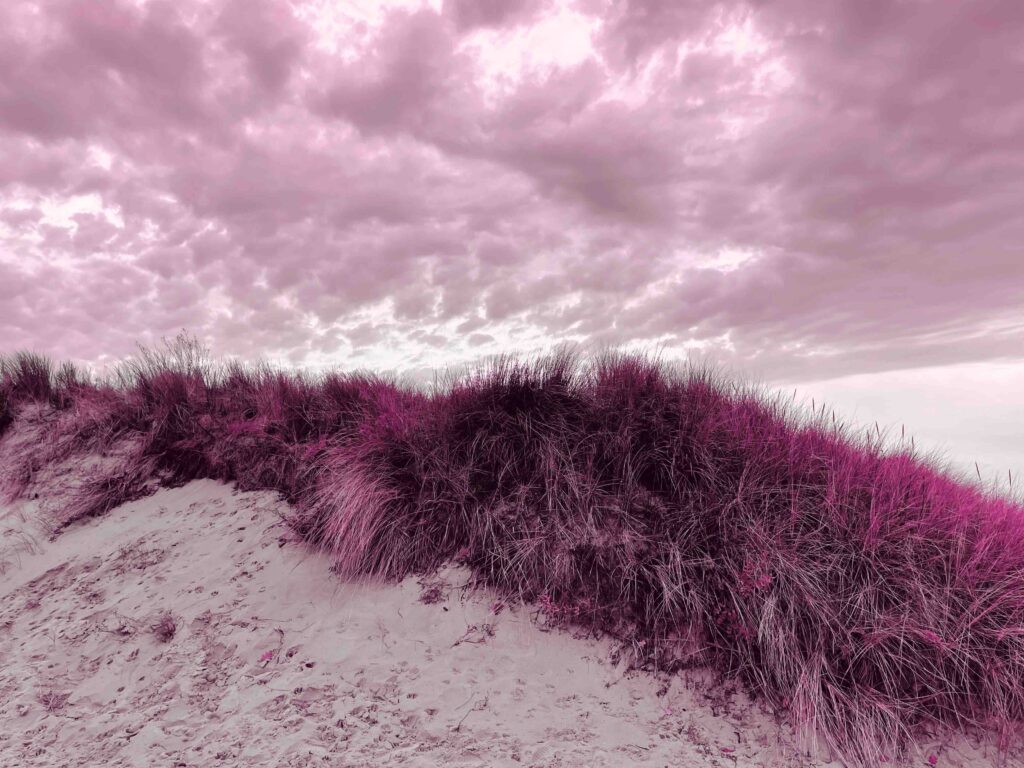
It is almost as if they were charting a course, like following the branches of a stochastic map, an inner tree diagram. A thought of the imagination. To the naked eye, an olive tree with many branches. Each with a unique nuance of understanding. You find a road map in a conversation. You remember a line of thought. Then suddenly they forget everything else and what came before, lost from their working memory. It is as if they were assembling many grains of sand. A small path leads in ever new directions, but they do not know how to play the melody in rehearsal.
Everything is natural and timeless. Every olive grove needs time to grow, like a good morning conversation. And in a good morning conversation, every question deserves an answer, and every answer illuminates a branch, a path that points to the light of a good heart. And every conversation needs to be watered and nurtured like a cultivated olive grove. The riders seek a good conversation, words of melody.
In the midst of the conversation, everything gains grace. There is a sense of passion among them all. They like to break bread in the morning. It is early. It is good.
Charting the course with binoculars. Good lenses.
It is almost as if the captain of the Atlantic Ocean used mathematics. Can we read the vastness of the desert by calculating nautical coordinates on the Atlantic Ocean?
Using the concept of geometry and the optics of light, they studied where the ship would sail through the grains of sand. It is as if they were navigating an Atlantic Ocean of light plankton, on the surface of the deepest, most breathtaking blue.
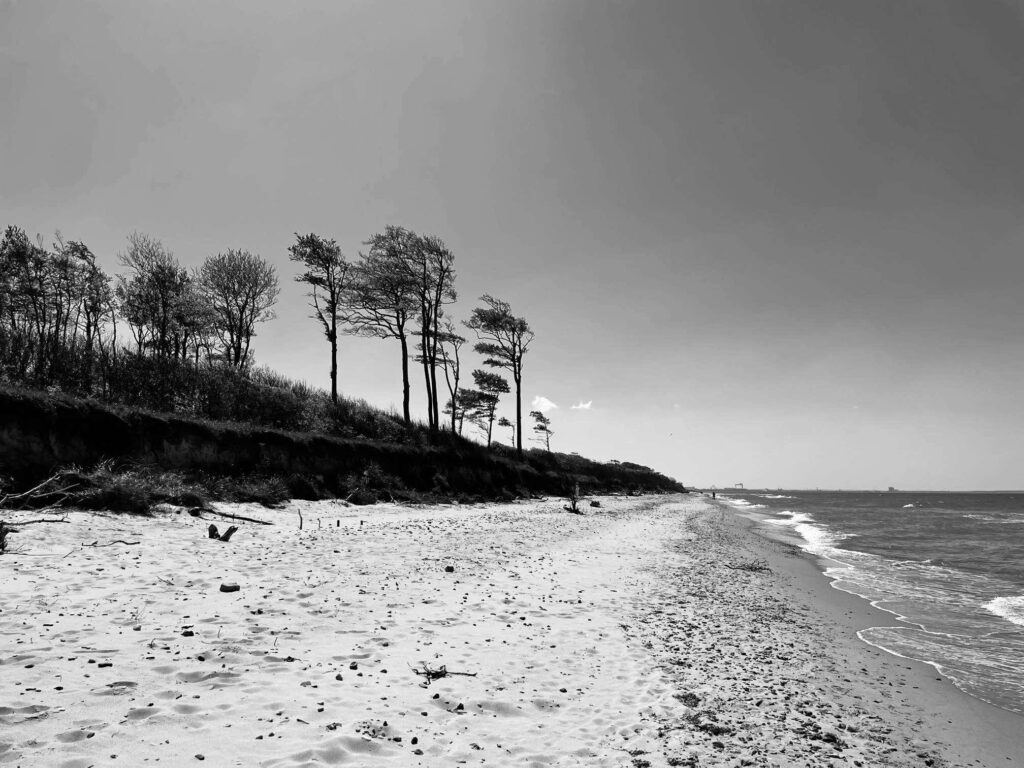
(v)
There is light all around. There is light. There is a graceful language, a Phoenician alphabet of the imagination. Flowing forms, flowing words. The flat land and the sandstone cliffs reassemble into forms in the early morning. Have you seen the little ripples of light reflected in the grains of sand? A flowing movement of merging, like a stream of light and sand, both beautifully blending into each other. Synchronicity. There are comments in brief conversations as they re-saddle the horses. They offer a sense of appreciation for the light that finds them from the side as they turn toward the light. The movement is one of grace and inspiration. Can there be anything more meaningful than appreciating the light, the lightheartedness at the center of one’s being?
The desert heats up. You allow the grace of imagination to flow further, along the path on the better side of the sand. Climbing up the sandy hill, your hand moves the reeds, feeling the slight hardening of the sand beneath your feet. An invitation to rest.
Sandy clothes lie lazily. We sit. The mind ignites, feels forms of poetry emerging from the corpus callosum. The mind comes alive in the south, in the warmth, the sun and the light. This is imagination, the realm of the mind beyond previous recognition, perceiving the light. Imagination flows, a perpetuum of constant rediscovery and discovery.
Feel the desert speak. You know that there are two sides to every grain of sand. One side is of light and one is of darkness. So it seems in poetry. Just a thought. Every journey navigates between the two, making the journey with prolonged ease and beauty. At every turn of your movement, morning becomes noon. Longing for light.
The dust carries sound like a beautiful musical instrument, like the strings of a balalaika. It feels to them like an aeolian wind, if not a whole haboob from the desert. Playing with words. They are in their memories. They reflect, almost without immediate thought. Everything is.
In the infinity of desert and sand they find many sound patterns, journeys within journeys. They find beauty in the stories as in a multi-layered matryoshka. Where is the desert? In the imagination? There is sand and a fruitful garden. Ripe apples of conversation between all. Green apples are ripe with words of fascination, fantasy. Everything becomes.
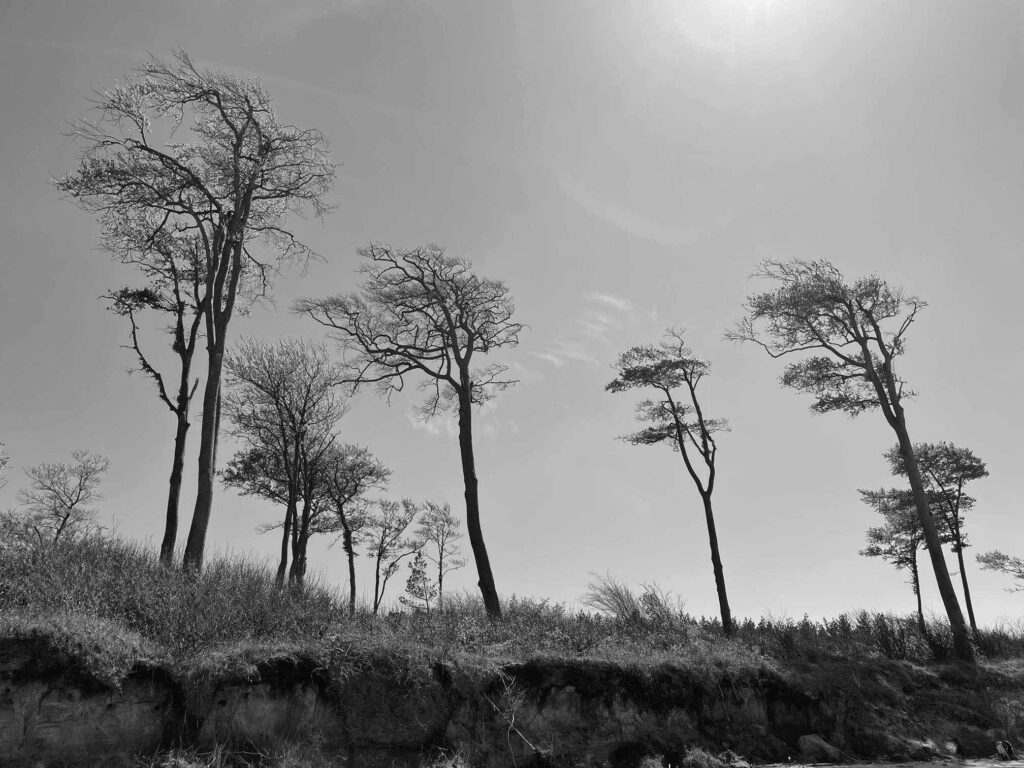
(vi)
The transcendent quality of sand, what a joy. At this moment, the travelers are looking inward, their eyes are looking outward. They keep their eyes on the long movement in the sand. In this moment everything seems timeless. Their perception becomes one, flowing and feeling the slight movement of time. You perceive ridges in the sand. You find lines of sand ebbing and flowing. All sand flows sideways. You find fresh buds of light, or so it seems. Light that is slowly finding its home in the shadows, or light that lies somewhere between the lines of sand, but is gradually changing. With a caring eye, you survey the contents of the sand like an architect.
Infinity, the light in the shadows of the desert, merging into one.
At noon you take a short break. A limestone rock beside you. A good place to sit for a while. The light, high above, moves over the rock. The light flows like words. And you appreciate the goodness of the limestone.
Such a rock bends slightly in passion to await the arrival of travelers. The rock offers a shadow, if only for a while. They appreciate it, for the shadow cools them and gives back to their souls. For the shadow moves with the sun’s journey. And they move a little, so they cool a little.
They write stories on bamboo, the pages slightly torn. The edges of the leaves have discolored with time. The feather quill draws little waves of bright emerald ink across the bamboo. Sometimes the lines, the words, merge, creating new words from the previous ones.
Poets at heart, they are content to draw lines on a flat surface, as if on desert sand. Each line with an open space. Lines yet to be written by their poetic thoughts. Imagination. Thoughts that stretch out like thoughts written with an emerald feather pen. They play the beautiful balalaika, devoted poets, playing syllables like notes on strings with the emerald feather quill. And they always have the emerald feather with them, playing notes, playing strings. The beauty of poetry is in them, carried by the words and notes of the balalaika. A garden of nutritious, wise figs.
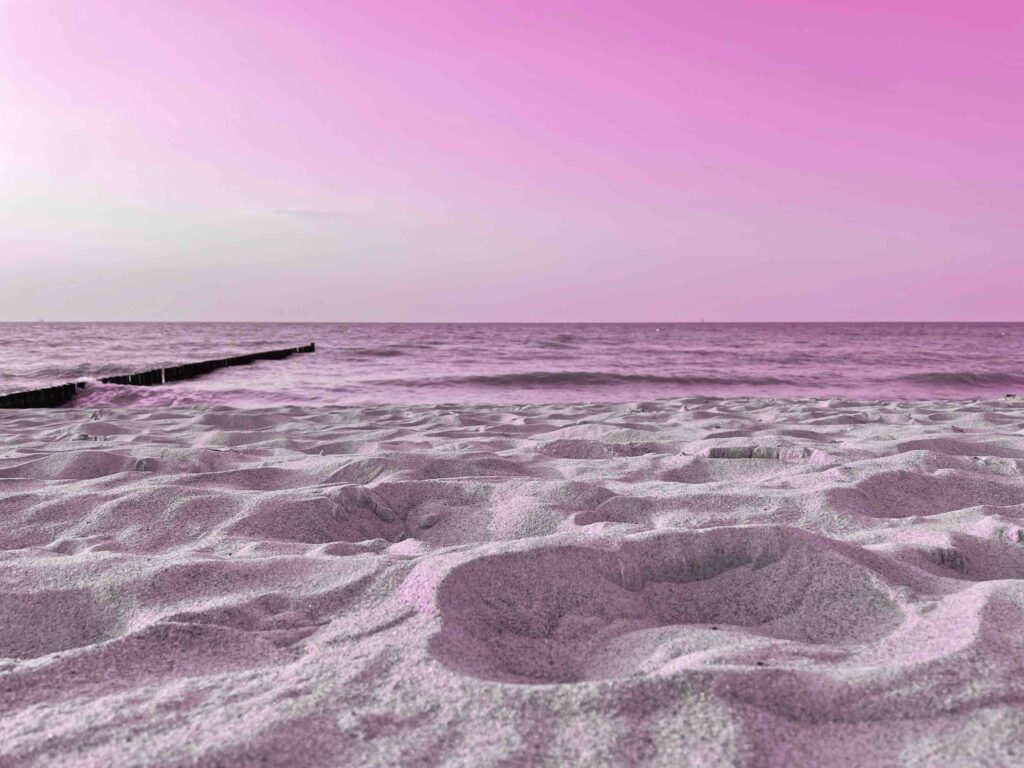
(vii)
With the beautiful balalaika they write notes of classical beauty. Strings are like notes, and they are beautiful. Beautiful music. Notes add new volume to the books of ancient libraries, perhaps Samarkand and Bukhara.
Grains of sand often flow onto the paper. They stir the paper and sometimes stay on the side of the bamboo for minutes. The sand that blows onto the paper is not brushed away. The notes on the paper, once dried in the glistening sun, are ready to be read. They flow line by line. And the heart is at ease, playing beauty, lines of music. The friendly shadow of the limestone rock in silence. The Balalaika awakens the inner beauty, ignites the imagination. One or two lines as a message of gratitude to the sturdy rock.
Imagine who else might have benefited from sitting here. Who else might have sat here, next to the limestone rock in the desert? And the emerald feather, shaped like a peacock’s eye with a little turquoise, like an emerald, draws thoughts that flow in the air. Flowing in the imagination, watching the desert sand become a grove of fig trees with each written word. Each note flows from the feather. Soft notes from the soft frond of a feather, a feather of imagination. Can a green feather bring a garden to life, create miracles in the sand? If you let your imagination play, yes.
The world spans a geometric arc, far above the limestone. Many beautiful thoughts, minds. Each thought is unique, bringing perspective, showing form.
The emerald ink of the balalaika quill is the breath of beauty. Reflecting many ideas, garden. The beauty of all and shared by all. Emerald ink creates a ballad in the imagination, and the imagination reaches as far as the wind of the desert. Is there a limit to the stanza of such writing? See the pink glow of the desert evening sky. A quality above the mountains. And can the desert, the desert, become again like an emerald with many thoughts? Thoughts to ponder.
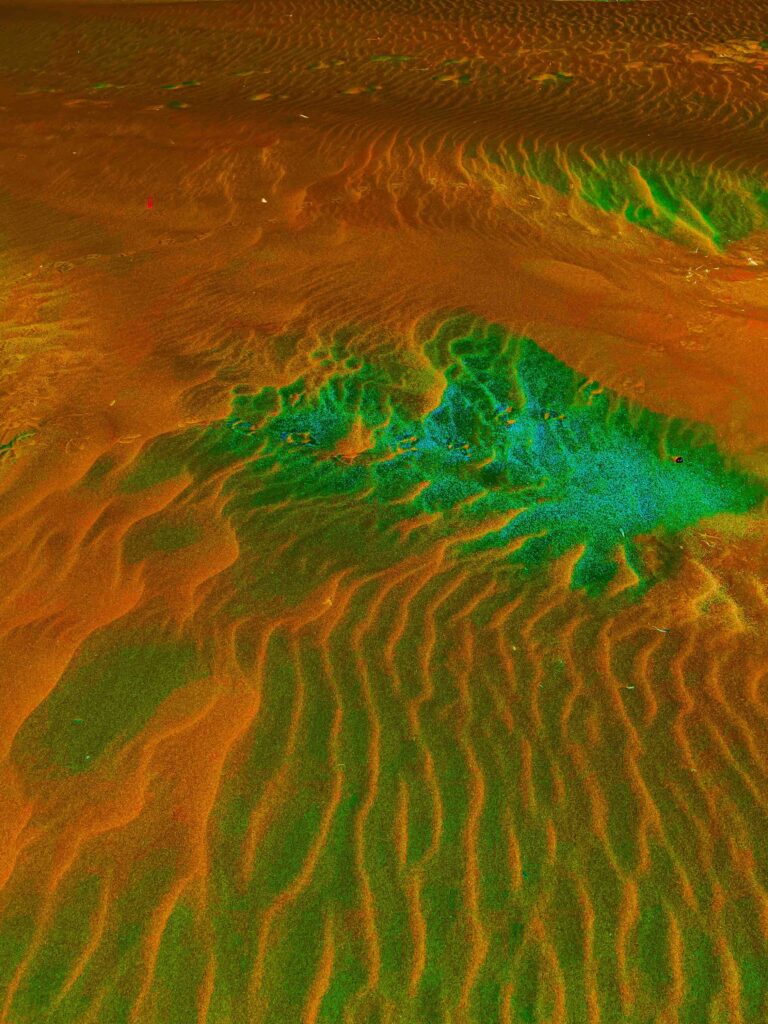
(viii)
And they play balalaika, beautiful lines of music. And the nuances flow in beauty. Every word. Every word flows. The strings of the instrument like the feathers of the wind. The soft yet clear musical strings of the balalaika reflect the desert.
Light reaches them and the inner eye of perception. They write. Perception is felt, experienced. There is a limit to understanding only in the imagination.
Imagination becomes the Atlantic Ocean of the imaginable. Imagine balalaika, reach into the imagination.
Every desert is a reflection. Every grain of sand is part of the fabric of timeless continuity. And the sand carries the movement in swirls before your eyes, past the rock. See the footsteps from where they came. The footsteps begin to fade. They lose themselves. And your perception flows away like the movement of the strings, blowing away every grain of sand. Some footsteps remain, like a small oasis near the rock.
The light transcends at noon. The light of noon flows on the surface of the desert. The light spreads. At noon, the notes written in emerald ink have dried, all the moisture has evaporated from the bamboo. Words have been written. Did the ink collect beautiful thoughts? Does it still reflect the poetic nuance of the ancient library? It is the fruit of philosophy, the thought of all things coming together.
And in each line of emerald ink, a new garden is stirred in the imagination. The imagination stretches far out, seemingly into the desert. Sounds dissolve evenly, with the balalaika we carefully cultivate the beauty of the imaginary garden on each sheet of bamboo. With every word you find the beauty of the syntax, the beauty of the garden. The beauty of the fig.
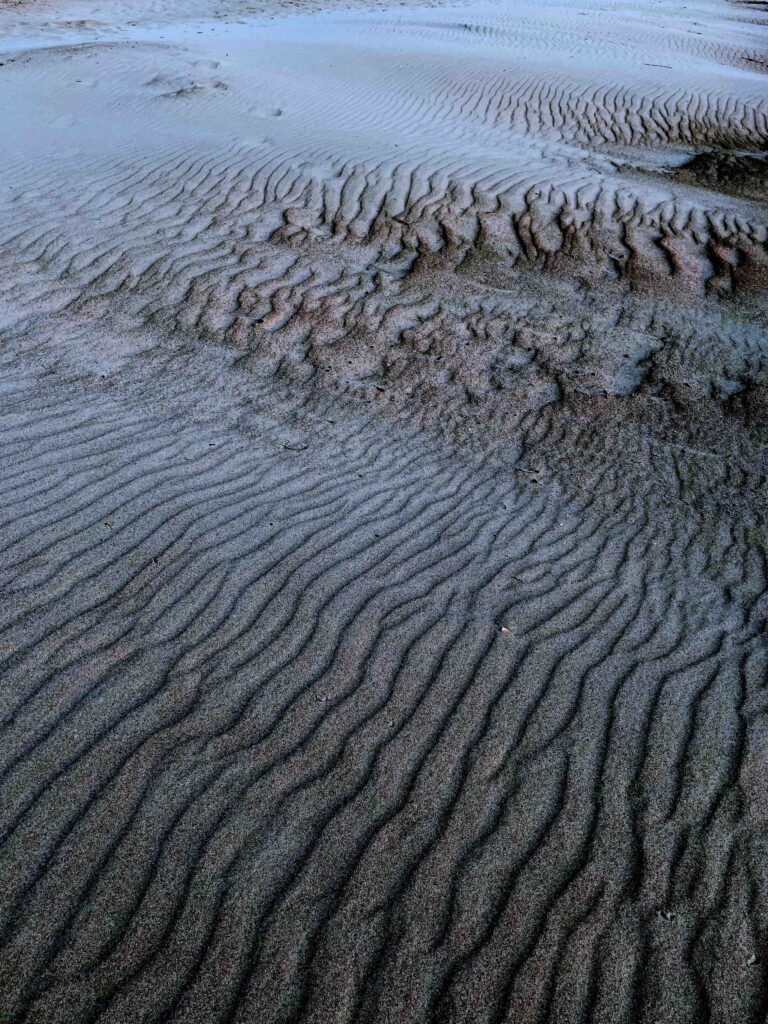
(ix)
With a little initiative after such a wonderful rest, they find their way out of the shadows. From the limestone cliffs they walk across the desert. Each sandhill a unique formation, like a unique sheet of bamboo. Pages written with emerald ink and a feather quill. They see what is written.
They have an inner compass, a caliper of sand and time. Their journey continues for hours, stopping here and there to rest. They find the beach stretching out before them, an inner map plotter on the Atlantic Ocean.
Here the Atlantic and the sand are one. Elements. The swaying of the two creates nuances, and the salty air tickles the nose with wonder. What a liberating experience to see not only desert, but the Atlantic Ocean. The view is magnificent, with reflections of the desert. You find soft sand and look out into the Atlantic Ocean, water. Here we are.
As the sun sets and the pink of the desert sky illuminates the beach. You reflect on the beauty of life itself. You see the sand and the water of the Atlantic Ocean.
A quartz watch announces that you will meet. But time often feels timeless in the desert.
You look into the distance and wait. Horse hooves break waves on the wet sand.
Today is a good day, a day to meet and rest and be in good company. Every little good experience is best shared in good company. We feel a little happiness and eudaimonia.
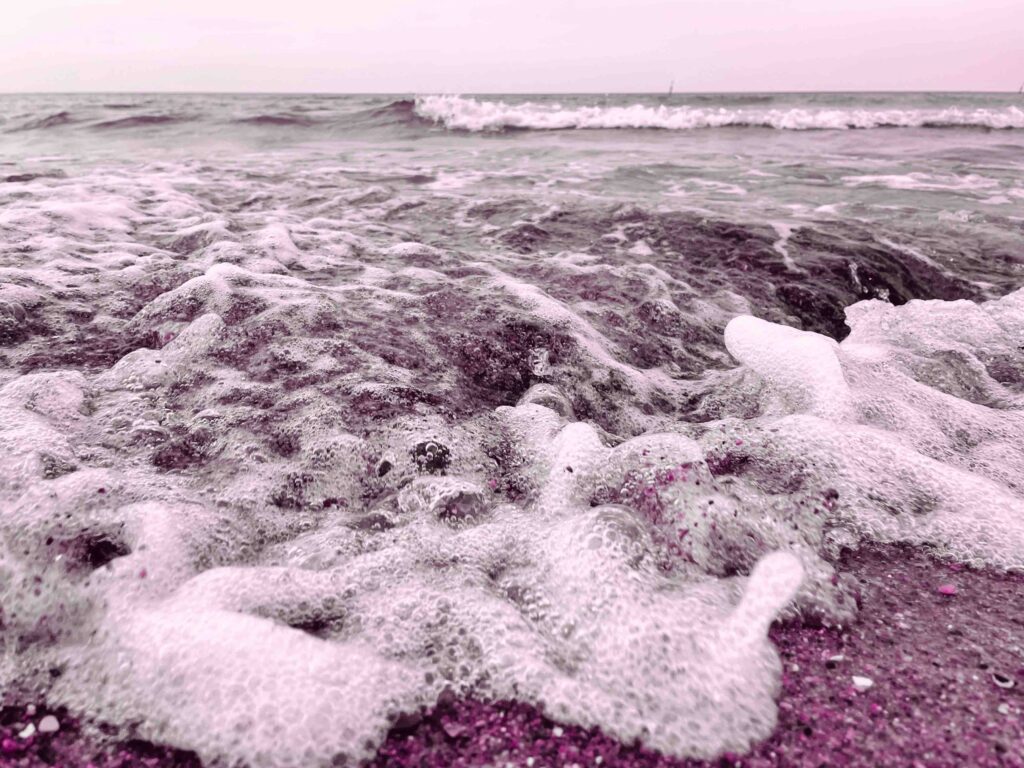
To contact the Author: tlbgls@proton.me
*°*°*
Traduzione di La Redazione di InTheNet
Tundra
(i)
Una buona notte di riposo. Cade la notte mentre l’orizzonte roseo lascia il posto a una notte stellata. La luna sale, luminosa, tenera. Ma un raggio di luce rimane all’orizzonte. I cavalieri piantano le tende sul terreno accanto alle rupi del deserto. Ascoltano il suono della balalaika, la balalaika del nord. Suonano la balalaika meravigliosamente.
Uno strumento musicale triangolare con le corde, un bel suono.
Rimangono pace e leggerezza. Abbiamo tempo di guardare in alto, la neve rimasta si sta sciogliendo. Forse la neve si scioglie in acqua di falda? Questa terra ha certamente bisogno del liquido vitale, l’acqua. Giriamo gli occhi verso l’orizzonte. I cavalieri rimontano sulle loro selle. Gli ultimi raggi di sole color vermiglio si rannicchiano tra le rocce calcaree appena prima che cada la notte. Avete mai notato come una roccia calcarea è modellata dalle ombre del vento?
Lascia la valle dietro di te. Una pianura si allarga dove le rocce si sono sbriciolate a terra. La volta si distende all’orizzonte. Il terreno roccioso cede gentilmente sotto gli zoccoli dei cavalli. Gli zoccoli appiattiscono il terreno, spingendo minuscoli pezzi di roccia da una parte del sentiero o dall’altra. Lungo la strada, piccoli sassi. Il calcare si rompe e si riassembla.
Parola dopo parola, il deserto fluisce come una serie di frasi. È come se la sabbia si muovesse. Ma tu sai che presto ci sarà una pausa per la notte. Ci sono onde di gioia nelle parole. La notte sta arrivando. Vi è gioia in ciò che non si può catturare con le parole. Continuiamo a leggere, dimenticando le parole. Ne aggiungiamo di nuove che fluiscono magnificamente. L’animo si solleva appena. Il fluire del linguaggio si fa più lieve, un po’ come il flusso del deserto. I cavalieri ondeggiano con grazia. Mentre ogni strato di sabbia cambia direzione, i loro cuori trovano la propria realizzazione più intima nella conversazione. Magnifico.
Riposo notturno, la tenda preparata. Ci ritroviamo nuovamente insieme. Auspicabilmente ristorati per la mattina. O almeno quanto permette l’immaginazione umana.
Il mattino suggerisce la luce. Il cielo si fa azzurro. Amore tenero e un buon giorno. A volte le prime luci sono l’inizio, fresche come agrumi, succo di limone.
In piedi all’ombra di strati su strati di sabbia, punteggiati da piccoli sassi e detriti dei monti. Alcune pietre sono dure e levigate, e brillano come sabbia di quarzo. Emergono nella luce mentre il sole sorge.
Le tende sono state piantate sulla terra arsa per proteggerli mentre dormivano. Sono innaffiati col tè, ben nutriti dopo aver mangiato millefoglie e baclava (dessert ricco di zucchero, n.d.t.), condivisi tra tutti.
Sono profondamente soddisfatti, vi è una risonanza profonda. Ognuno si sente parte del viaggio. I sogni della notte trascorsa riposano nei loro cuori. Riflettono, condividono bei sogni. Stanno viaggiando tutti insieme.
Vi è un momento di riflessione. Si discute di filosofia stamane alla maniera di Socrate. L’occhio fluttua gentilmente. Misurano la terra. Trovano linee aggraziate che si estendono di fronte ai loro occhi. La bellezza non è solo dentro di loro. Ma intorno a loro. Si estende da dentro a fuori, nell’immaginazione della sabbia che copre il mattino. Il sole sorge. Vi è una combinazione di luce e buio mentre l’oscurità gentilmente lascia il posto alla luce. I loro volti sono subitamente illuminati. È un buon momento. È bello stare in buona compagnia.
(ii)
Il deserto si sposta e riflette. La luce è visibile come un paesaggio delicato e sono emesse brevi onde di ultravioletti. È l’alba. Ma alcune ombre permangono, cambiando ancora e ancora dall’oscurità alla luce con l’arrivo del mattino. Il cuore più profondo si volge ai colori tenui del deserto. Irrompe il mattino. Ogni cosa è in cerca e si sente parte, come la bella matrioska a più strati. La terra è simile al Koš-Agač (nella Russia asiatica, n.d.t.), ampi spazi di argilla color rame, o come sulla catena montuosa di Atlante. Le rocce desertiche ricche di ferro e la tundra si somigliano. Hanno la stessa qualità spirituale, percezione a strati intessuta come unità.
Ora vedi il colore del deserto passare dall’oscurità alla luce sui picchi soffici e piatti all’orizzonte, che diventano di un azzurro più intenso ove ogni cosa si mescola alla complessità, una macchia scura con sopra un frammento di luce. Ogni cosa cerca l’inizio di un nuovo giorno glorioso che incanterà il cuore del cavaliere. Il freddo lascia il posto al tepore e la terra si soddisfa. La chiarezza di questa mattina non è il colorito roseo serale, ma la limpidezza del mattino. A distanza, i monti si ergono decisi. Riposano in una coperta simile a nebbia bianca che giace sulla terra. Mattino.
(iii)
Immaginazione. Intermezzo. Altro luogo. Altra terra. Terra e deserto sembrano mescolarsi nel paesaggio di Koš-Agač, l’argilla color agata, o quella dell’Atlante. La nostra immaginazione.
Montagne torreggianti con picchi incappucciati di neve invitano il cavaliere a esplorare e avventurarsi nell’ignoto.
Ogni mattina in Koš-Agač, argilla color agata, o quella dell’Atlante, porta nuova gioia al suonatore di balalaika.
Il sole splende nell’ampia valle ove ogni strato di roccia mostra un colore unico e delicato. Gli occhi dell’immaginazione si spostano dalla valle punteggiata di aceri. Begli aceri tatari, leggermente borgogna, eppure sembrano abbracciare l’azzurro profondo del cielo. Sono solidi. Dalle pianure erbose, si estendono attraverso la valle verso l’immensità del pino e della betulla che attraversano la taiga.
Ma la neve della taiga è lontana dal deserto. C’è una distanza geografica dalla terra delle conifere.
(iv)
Di ritorno dall’intermezzo. Il deserto. L’ampio cancello del deserto si apre di fronte a loro. Qui i cavalieri attendono che si finisca di impacchettare le tende, trattenendosi in una bella conversazione, profondamente innamorati. I loro occhi scorrono mezzo sopiti verso il deserto, scrutando le più piccole crepe, muovendosi attraverso lo spazio vasto per trovare la luce – che ha toccato le più belle pieghe delle rocce, con la terra sottostante. Tra le pieghe del deserto, la terra è ancora leggera il mattino.
Le ombre intercettano ancora i picchi, il lieve ondeggiare al di sopra delle rocce. La luce separa e dissolve in ombre che allietano. La polvere bianca del mattino si dissipa e si ristruttura naturalmente. La landa piatta, in movimento perpetuo, dinamizza una miriade di forme di un giardino immaginario.
Nel paesaggio desertico, il parlare di un fiorire immaginario di pensieri filosofici conduce a un bell’allineamento, una scarica di serotonina che avvicina i cavalieri. La conversazione uno a uno, e a volte tra i molti. Sono come un giardino di fichi, un uliveto. Ogni nuvola di pioggia può, a suo tempo, trasformare il deserto in una dimora per olive e fichi. Ben irrigata è la terra nell’occhio dell’immaginazione – così sembra. Dorato è il bagliore del deserto il mattino.
Sono persone che conversano con grazia, cercatori di intere biblioteche di conoscenza. Sono vestiti coi colori del fico, un verde luminoso come le foglie dell’albero. Esprimono il loro profondo amore per olive e fichi e per gli alberi nordici, come il pino. Si preoccupano profondamente per la natura, coltivando molte palme da dattero che rendono verdi le oasi.
Sono nel bel mezzo di una conversazione mattutina casuale. I loro cuori buoni sono come i rami di un verde ulivo, calmi come la pace della brezza mattutina.
Sono di buon umore, suonano la balalaika del nord, e a loro agio nei discorsi mattutini. Le corde della balalaika suonano come i pini nel deserto, portando fiocchi di neve nella calura desertica. Dove ogni conversazione sembra una nuova sinapsi per crescere, un passo nell’ignoto. Sono aperti a ogni sfumatura di comprensione nella conversazione.
Come se stessero disegnando un percorso, come se stessero seguendo le ramificazioni di una mappa casuale, un diagramma arboreo interiore. Un pensiero dell’immaginazione. Ad occhio nudo, un ulivo con molti rami. Ciascuno con una propria sfumatura di comprensione. Trovi la mappa in una conversazione. Ricordi una linea di pensiero. Poi, improvvisamente, si dimentica tutto e ciò che è stato è perso dal lavorio della memoria. Come se stessero assemblando molti grani di sabbia. Un piccolo sentiero conduce in sempre nuove direzioni, ma non sanno come suonare la melodia per la rappresentazione.
Ogni cosa è naturale e senza tempo. Ogni ulivo ha bisogno di tempo per crescere, come una buona conversazione mattutina. E nella stessa, ogni domanda ha diritto a una risposta, e ogni risposta illumina un ramo, un sentiero che punta verso la luce di un buon cuore. E ogni conversazione ha bisogno di essere innaffiata e nutrita come un uliveto. I cavalieri cercano un buon argomento di conversazione, parole melodiose.
Nel mezzo della conversazione, tutto acquista grazia. Vi è un senso di passione tra tutti loro. Amano spezzare il pane, il mattino. È presto. Va bene.
Tracciano il percorso col binocolo. Buone lenti.
Quasi come il capitano dell’Oceano Atlantico che usava la matematica. Possiamo leggere la vastità del deserto calcolando le coordinate nautiche sull’Atlantico?
Usando il concetto di geometria e l’ottica della luce, studiavano dove la nave potesse salpare attraverso i granelli di sabbia. Come se stessero navigando nell’Oceano Atlantico di plancton luminoso, sulla superficie dell’azzurro più profondo – da togliere il fiato.
(v)
Vi è luce tutt’intorno. Luce. Un linguaggio aggraziato, un alfabeto fenicio immaginario. Forme fluttuanti, parole fluenti. La landa piatta e le pareti di arenaria si riassemblano nelle forme del primo mattino. Avete visto le piccole onde di luce riflesse nei granelli di sabbia? Un movimento fluente di fusione, come una scia di luce e sabbia, entrambe magnificamente mescolate. Sincronismo. Vi sono commenti in brevi conversazioni mentre risellano i cavalli. Esprimono apprezzamento per la luce che li trova di lato mentre si girano verso la stessa. Il movimento è un tutt’uno di grazia e ispirazione. Può esservi qualcosa che sia più significativo che apprezzare la luce, la spensieratezza al cuore del proprio essere?
Il deserto si scalda. Devi permettere alla grazia dell’immaginazione di fluire oltre, lungo il sentiero sul lato migliore della sabbia. Arrampicandosi sulle colline sabbiose, la tua mano muove i giunchi, sentendo il leggero indurirsi della sabbia sotto i piedi. Un invito al riposo.
Abiti polverosi restano pigramente. Sediamo. La mente si accende, sente forme di poesia emergere dal corpus callosum. La mente torna in vita nel sud, nel calore – il sole e la luce. Questa è immaginazione, il reame della mente oltre ciò che era precedentemente riconosciuto, percependo la luce. L’immaginazione sgorga, una perpetua costante riscoperta e scoperta.
Sentir parlare il deserto. Sai che ci sono due lati per ciascun granello di sabbia. Uno è luminoso e l’altro oscuro. Così sembra la poesia. Solo un pensiero. Ogni viaggio naviga tra i due, prolungandone bellezza e felicità. A ogni svolta, il mattino diventa meriggio. Agognando la luce.
La polvere porta il suono come un meraviglioso strumento musicale, come le corde di una balalaika. Gli sembra di sentire come un vento eolico, se non un haboob del deserto (una tempesta di polvere e sabbia, n.d.t.). Giocare con le parole. Loro sono i loro ricordi. Riflettono, quasi senza pensiero immediato. Ogni cosa è.
Nell’infinità del deserto e della sabbia trovano molti sentieri sonori, viaggi all’interno di viaggi. Trovano la bellezza nelle storie come in una matrioska multistrato. Dov’è il deserto? Nell’immaginazione? C’è sabbia e un guardino pieno di frutta. Mele mature di conversazione tra di loro. Mele verdi maturano con parole di fascinazione, fantasia. Ogni cosa diventa.
(vi)
La trascendente qualità della sabbia, che gioia. In questo momento, i viaggiatori ricercano interiormente, mentre i loro occhi guardano verso l’esterno. Tengono lo sguardo fisso sul movimento distante della sabbia. In questo momento tutto pare senza tempo. La percezione diventa una, fluida e capace di sentire il minimo passare del tempo. Percepisci crinali sabbiosi. Trovi linee di sabbia fluttuanti avanti e indietro. La sabbia fluttua lateralmente. Trovi boccioli di luce, o così pare. Luce che lentamente dimora tra le ombre, o che giace tra le linee di sabbia, ma gradualmente cambia. Con occhio premuroso, studi i contenuti della sabbia come un architetto. Infinito, la luce nelle ombre del deserto, si fonde in un tutt’uno.
A mezzodì una breve pausa. Accanto a una roccia calcarea. Un buon posto per sedersi per un po’. La luce, in alto, si muove sulle rocce. La luce fluisce come le parole. E apprezzi le qualità del calcare.
Una tale roccia si piega leggermente con passione in attesa dell’arrivo dei viaggiatori. La roccia offre ombra, anche solo per poco. L’apprezzano per l’ombra che li rinfresca e ridona loro l’anima. L’ombra si muove col tragitto del sole. Se si muovono un po’, si rinfrescano un po’.
Scrivo storie sul bambù, le pagine leggermente lacerate. I lembi delle foglie sono scoloriti col tempo. La piuma disegna minime onde d’inchiostro di smeraldo brillante attraverso il bambù. A volte le linee, le parole, si mescolano, creando nuove parole da quelle precedenti.
Poeti nel cuore, sono felici di disegnare linee sulla superficie piatta, come sulla sabbia desertica. Ogni linea con uno spazio aperto. Linee ancora da scriversi con i loro pensieri poetici. Immaginazione. Pensieri che si distendono come se fossero scritti con una penna di smeraldo. Suonano la balalaika, poeti devoti, pronunciando sillabe come note su corde con una penna di smeraldo. E portano sempre con sé la penna di smeraldo, suonando note e corde. La bellezza della poesia è in loro, portata dalle parole e dalle note della balalaika. Un giardino di fichi nutrienti e saggi.
(vii)
Con la balalaika scrivono note di bellezza classica. Le stringhe sono come note, e sono magnifiche. Bella musica. Le note aggiungono nuovo volume ai libri di antiche biblioteche, forse a Samarcanda o a Bukhara (città sacra dell’Uzbekistan, n.d.t.).
Grani di sabbia spesso fluiscono sulla carta. Smuovono la carta e a volte stanno accanto al bambù interi minuti. La sabbia che soffia sulla carta non è spazzata via. Le note sulla carta, seccate nel sole splendente, sono pronte per la lettura. Fluidi – linea dopo linea. Col cuore a proprio agio, suonando belle linee musicali. L’ombra amica della roccia calcarea in silenzio. La balalaika risveglia la bellezza interiore, accende l’immaginazione. Una o due linee di messaggio di gratitudine alla roccia massiccia.
Immagina chi altri avrebbe potuto beneficiare sedendo lì. Chi altri avrebbe potuto sedere accanto alla roccia calcarea nel deserto? E la penna smeraldo, sagomata come un occhio di pavone con un tocco di turchese, disegna pensieri che fluttuano nell’aria, Fluendo nell’immaginazione, guardando la sabbia diventare una piantagione di fichi con ciascuna parola scritta. Ogni nota fluisce dalla penna. Note lievi dalla lieve penna di una piuma d’immaginazione. Può una penna verde ridare vita a un giardino, creare miracoli nella sabbia? Se giochi con l’immaginazionene, sì.
Il mondo abbraccia un arco geometrico al di sopra dell’arenaria. Pensieri e menti belle. Ogni pensiero è unico, regala prospettive, mostra forme.
L’inchiostro smeraldo della balalaika è il respiro della bellezza. Riflettendo molte idee – giardino. La bellezza appartiene ed è condivisa. L’inchiostro smeraldo crea una ballata immaginaria, e l’immaginazione va lontano come il vento del deserto. C’è un limite alla stanza di tale scritto? Guarda la luce rosea del cielo serale desertico. Un pregio sui monti. E può il deserto ridiventare come uno smeraldo con molti pensieri? Pensieri da meditare.
(viii)
E loro suonano la balalaika, belle linee di musica. E le sfumature fluiscono in bellezza. Ogni parola. Ogni parola fluisce. Le corde dello strumento come le piume del vento. Le lievi ma chiare corde musicali della balalaika riflettono il deserto.
La luce li raggiunge e raggiunge l’occhio interiore della percezione. Scrivono. La percezione si sente, sperimenta. C’è un limite alla comprensione solo nell’immaginazione.
Immaginazione diventa l’Oceano Atlantico dell’immaginabile. Immagina la balalaika, raggiungi l’immaginazione.
Ogni deserto è un riflesso. Ogni grano di sabbia è parte del tessuto di continuità senza tempo. E la sabbia trasporta il movimento in vortici di fronte ai vostri occhi, oltre la roccia. Guardate i passi da dove arrivavano. Le orme iniziano a dissolversi. Si perdono. E la vostra percezione fluisce come un movimento delle corde, soffia ogni grano di sabbia. Alcune orme restano, come una piccola oasi vicino alla roccia.
La luce trascende nel meriggio. La luce nel meriggio fluisce sulla superficie del deserto. La luce si diffonde. Nel meriggio, le note scritte in inchiostro smeraldo si sono seccate, tutta l’umidità è evaporata dal bambù. Sono state scritte parole. L’inchiostro ha collezionato bei pensieri? Riflette ancora la sfumatura poetica dell’antica biblioteca? È il frutto della filosofia, il pensiero di tutte le cose che arrivano insieme.
E in ogni linea di inchiostro smeraldo, un nuovo giardino è stimolato nell’immaginazione. L’immaginazione si estende lontano, apparentemente fino al deserto. I suoni si dissolvono uniformemente, con la balalaika coltiviamo con cura la bellezza del giardino immaginario su ogni foglio (sheet in inglese significa sia foglio sia foglia, n.d.t.) di bambù. Con ogni parola che trovi: la bellezza della sintassi, la bellezza del giardino. La bellezza del fico.
(ix)
Con un po’ di iniziativa dopo una tale meravigliosa pausa, ritrovano la loro strada fuori dall’ombra. Dalle rupi calcaree camminano attraverso il deserto. Ogni collina sabbiosa è una formazione unica, come un unico foglio di bambù. Pagine scritte con inchiostro di smeraldo e una penna d’oca. Vedono ciò che hanno scritto.
Posseggono un compasso interiore di sabbia e tempo. Il loro viaggio continua per ore, fermandosi qua e là per riposare.Trovano la spiaggia che si distende di fronte a loro, una mappa interiore sull’Oceano Atlantico.
L’Atlantico e la sabbia sono uno. Elementi. L’oscillazione dei due crea sfumature, e l’aria salata solletica il naso con meraviglia. Quale esperienza liberatoria vedere non solo il deserto ma l’Oceano Atlantico. Il paesaggio è magnifico, con riflessi del deserto. Trovi la sabbia soffice e guardi verso l’Oceano Atlantico – acqua. Ci siamo.
Mentre il sole tramonta e il cielo roseo del deserto illumina la spiaggia. Rifletti sulla bellezza della vita in se stessa. Osservi sabbia e acqua dell’oceano.
Un orologio al quarzo annuncia che vi incontrerete. Ma il tempo spesso sembra eterno nel deserto.
Guardi distante e attendi. Gli zoccoli dei cavalli rompono onde di sabbia umida.
Oggi è un buon giorno, un giorno per incontrarsi e riposare e stare in buona compagnia. Ogni piccola esperienza positiva è condivisa meglio se in buona compagnia. Sentiamo un po’ di felicità ed eudemonìa (stato di grazia che permette di esprimere il proprio potenziale, n.d.t.).
Per contattare l’Autore: tlbgls@proton.me
Friday, December 13, 2024 / venerdì, 13 dicembre 2024
On the cover and in the article: all images, courtesy by the contributor ©Till Bögelsack (all rights reserved. Reproduction prohibited) / In copertina e nell’articolo: tutte le immagini, courtesy l’autore ©Till Bögelsack (tutti i diritti riservati. Vietata la riproduzione)







